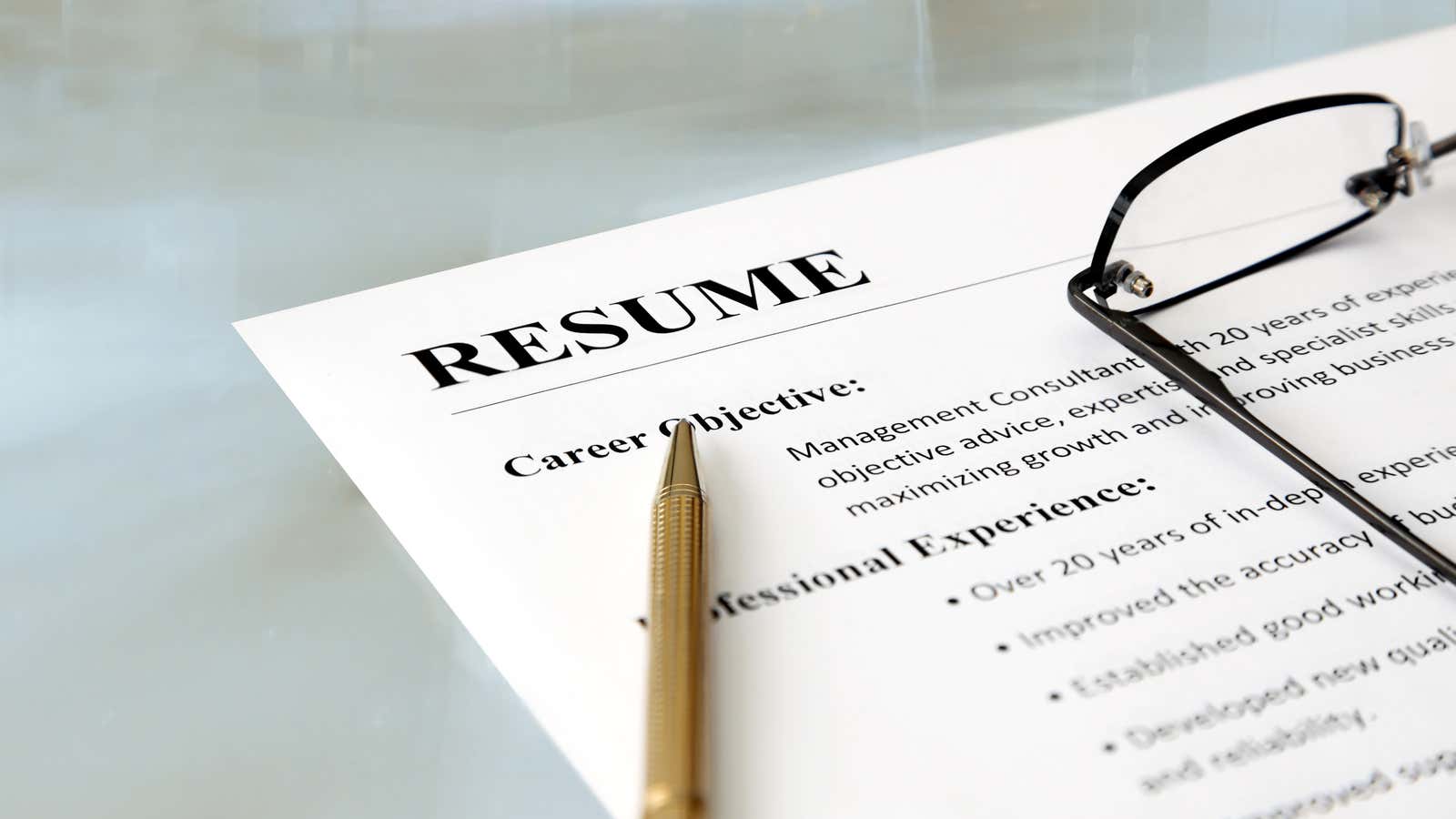When Can a Resume Be More Than One Page?

When it comes to business etiquette, there seem to be some unwavering standards, with no definitive rules explaining why – consider always sending a thank you note after your interview. And while the file format you choose to use when emailing your resume may depend on why you’re submitting it, another common question haunted many job seekers: How many pages can (or should) be on this resume?
Conventional wisdom often dictates that a one-page resume is the best way to go, as it will offer prospective employers the shortest and quickest summary of your talents and experience. But if you have a lot of experience and accolades worth noting, why should you limit yourself to such an abbreviated resume? As with most things related to finding a job, it turns out that the answers to these questions are not comprehensive, but rather a set of guidelines to consider, but if you remember a few basic principles, they should not represent too much of the problem. …
Entry-level employees should have a shorter resume
Naturally, it’s easy to see why someone just starting out should have a shorter resume. Their careers are just getting started and they lack the experience that would otherwise extend the life of an experienced professional. So if you’re just starting out, don’t feel the need to supplement your resume with high school accolades and student clubs – stick with what’s relevant to the position you’re applying for.
But if you are a more experienced worker trying to change careers, you may not have a lot of experience fully relevant to the new field you are entering, so your resume may need to be reduced as a result. It is often said that recruiters spend six seconds looking at a resume before deciding if they want to take a closer look at a candidate, so it is imperative that you be concise but present yourself in the best possible light. As Moira Lawler writes for recruiting platform Monster , you should highlight keywords that relate to your experience and indicate that you understand the specific requirements of the job you are applying for. Among the most important things to keep in mind, she notes:
Strategize your keywords, quantify your accomplishments, and most importantly, keep it short. This way, your resume will make a good first impression on the recruiter as it usually serves as your first point of contact when contacting the company.
In other words, if you have a really short resume, it is important that what it says shows that you understand the job requirements and that you are capable of meeting them.
When resumes can (and should) be longer
When I first started out, one senior colleague told me that my resume should always be on the same page, no exceptions. Since then, I have definitely not followed this rule, and this decision did not in the least affect my career (at least, I am currently working).
If you are going to have a long resume, you must make every inch of that space count. It is far better to have a short and economical one-page resume than a rambling and incoherent two-page resume. But if you have a lot of experience and accomplishments to advertise, there is nothing wrong with stretching your credentials over two or even three pages.
Mark Cenedella, founder and CEO of career resource site Ladders, suggests a general rule of thumb: For people who have worked 10 to 25 years, a two-page resume is required. For people with careers under ten, a one-page resume will probably suffice.
And when it comes to longer travel, he advises:
Two pages is enough to describe in detail your past experiences, successes and past assignments. This length allows you to showcase your career progress over the decades, while providing enough detail over the past five years to give your resume audience a very clear idea of your abilities and accomplishments.
If you find yourself in a camp of workers with less than 10 years of experience who still have special awards or achievements worth noting, the protocol should be as concise as possible, even if you do stretch it to the second page. In short, you don’t want it to look like you’re trying to stretch your experience across more than one page, so if and when you do, you can be sure it’s because your accomplishments deserve an extra respite.